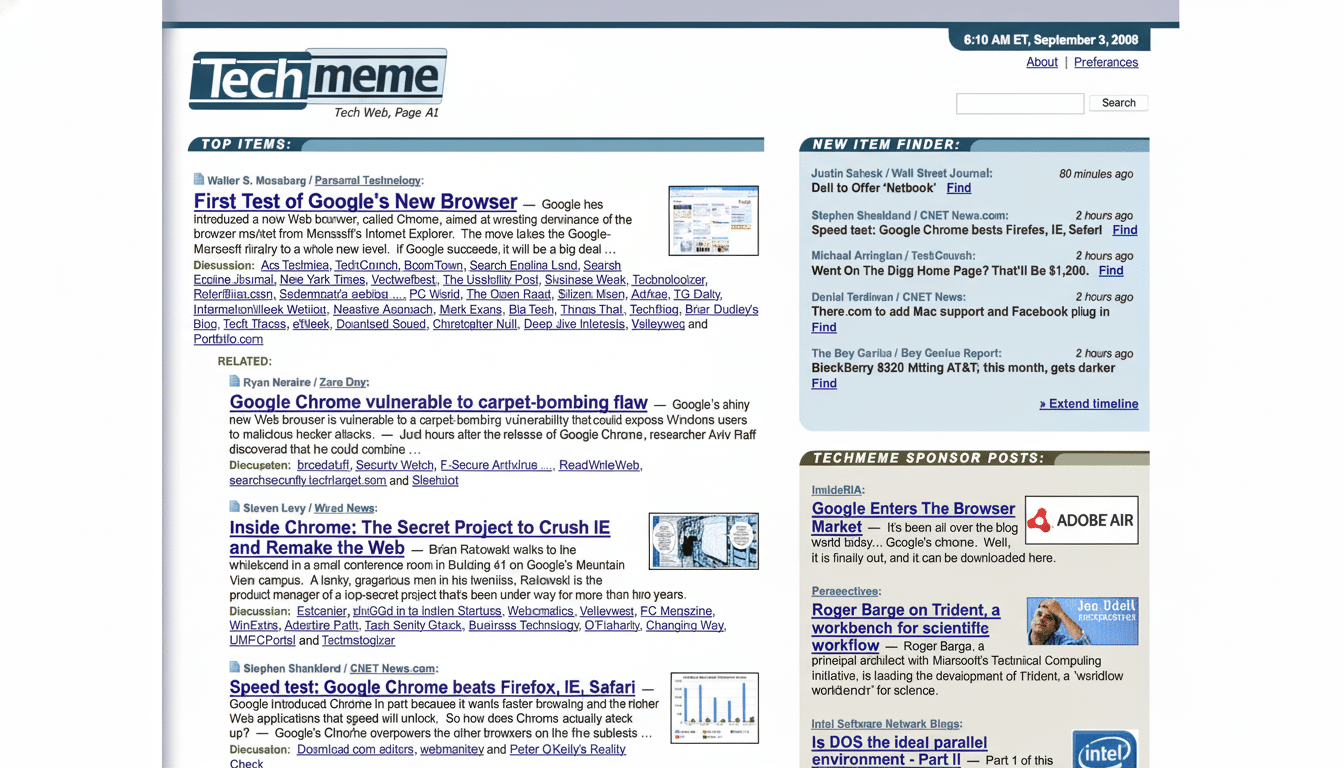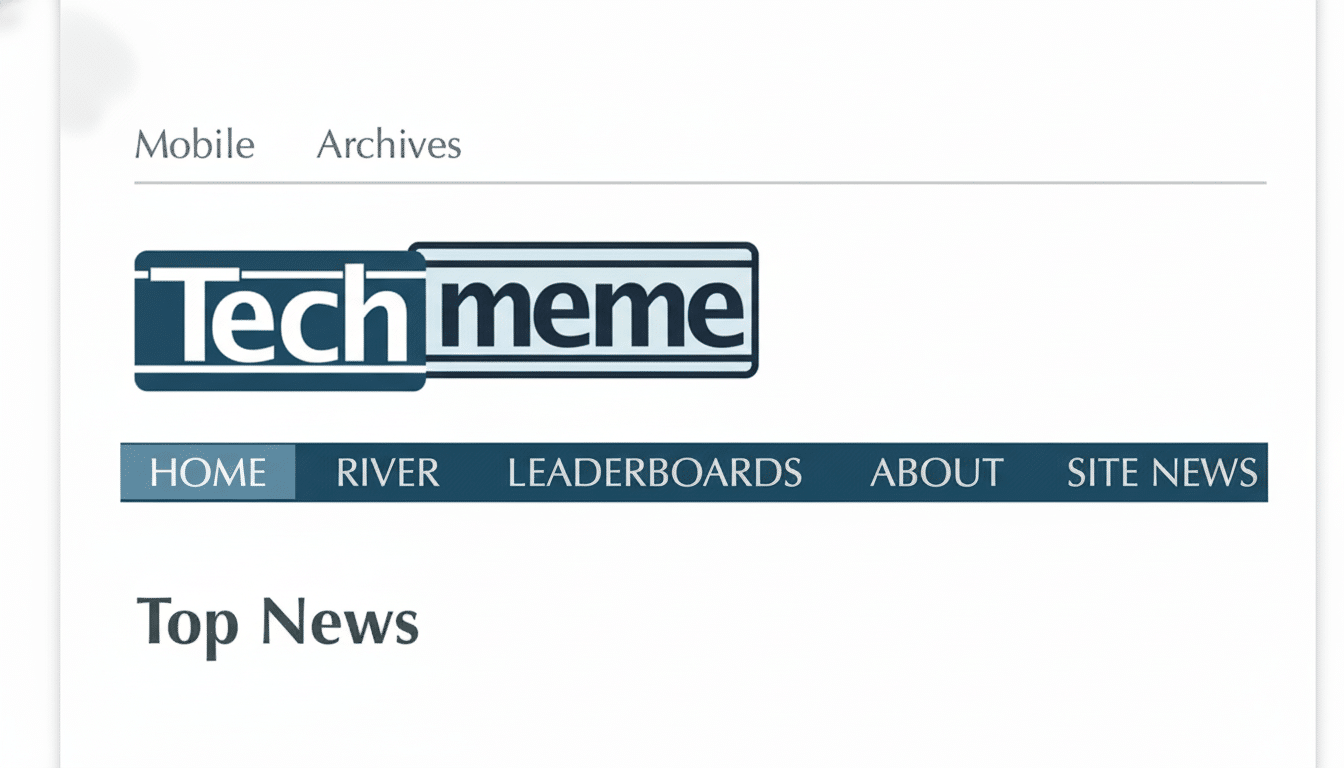Twenty years after its release, a spartan, link-first home page still dictates the day’s agenda for developers, founders, product leaders, and investors. The reason isn’t nostalgia. Its execution: velocity, brutal signal to noise discipline, and a blend of algorithms and editors that ensures it’s always unveiling the most relevant tech reporting — fast.
A quick, curated front page for the tech industry
At its heart, the site is a real-time tech front page. It takes in thousands of posts from publications, company blogs and independent analysts and clusters them into story packages with the most authoritative version of the news on top and background below. Those structures conserve time for pros: You get the main piece, the credible follow-ups, and the best analysis without having to comb half the web.

The day’s big events arrive — earnings, layoffs, an API change, a zero-day, a policy shift — and the utility is clear. Primary sources first (SEC filings, GitHub repos, blog posts), followed by the outlet that murdered the story, then intelligent second-day interpretations. It’s an answer to click-chasing and headline inflation.
Human editors when it counts
The technology does the grunt work, but human judgment shapes the final sequence and wording.
A small group of senior editors tweaks headlines for clarity, assigns extra play to original reporting and moves articles that are thinner rewrites to the bottom of the page, or drops them altogether. That blend — machines for breadth, editors for taste — makes the feed sharp, and believable.
It’s a counterintuitive approach in an age when algorithmic feeds are designed to maximize for engagement, not for accuracy. By emphasizing the reporting that actually drives movements in markets and roadmaps, it incentives outlets doing real work and leads readers to substance over spectacle.”
Signal trumps the social feed
Professionals have an hour to scroll through conflicting posts and regurgitated hot takes. Attention to breaking stories peaks early, according to research by Chartbeat, and the Reuters Institute has found again and again that heavy news users prefer direct access and newsletters. A brief, ranked stream of credible links matching how high-intent readers actually seek and consume information on deadline.”
That’s why Techmeme continues to be a daily habit for both executives and engineers. On- and off-stage, at conference panels and in interviews, leaders at major platforms, prominent investors and veteran reporters alike regularly cite it in part because it reflects their own priorities: what’s new, what’s true and what it all means for the next build, the next bet, the next briefing.

Context, not just headlines
The model of clustering adds much-needed nuance. Rather than having one take drown out others, readers see corroboration, counterpoints and the company’s own statement in one place. Quote threads from social sites and forums allow the practitioner to speak here as well but there’s no clutter of posts driving the article to near oblivion.
Special features reinforce that mission. The longest ranged leaderboard displays those reporters and outlets most often cited for original scoops. Curated live coverage hubs come alive with the best real-time reporting and tech threads during product launches and Developer conferences. It’s editorial scaffolding scaffolding for a fractured web.
Independence that builds trust
It is free, it is agile/ And the motives are pure. The design looks almost exactly the same as it has for years, and why shouldn’t it? Sponsorships are clear and targeted to the same professional audience that reads the site. In a volatile search-and-AI-overview landscape that has upended referral dynamics, direct visitation and email are durable channels — and this is born out in the research from industry outfits such as the Reuters Institute and Pew Research.
The brand also expanded cautiously. A daily newsletter culls the feed for inbox readers. The Techmeme Ride Home podcast, made with an outside partner, offers a ride home’s worth of packaged day’s headlines for commute-time listening. The Firehose is perfect for more dedicated users. Every extension simply delivers on the same core promise: fast, reliable curation for people shipping products and making decisions.
Still crucial in the AI age
AI summaries can condense text, but they are bad at editorial judgment — knowing what is important to include, who to trust and when to update information. Here, human-in-the-loop curation wins. Editors hold back when there’s a rumor stirring or a claim that doesn’t have a primary source. And when a company quietly posts some bit of policy change or release note that will have outsized impact, they elevate it quickly. That discipline keeps readers on the ball, so to speak.
And the result is a silent, monopolistic chokehold of attention among tech professionals. It’s not the most flashy site on the web, but it’s the one builders and leaders actually use. Twenty years later, the formula still works: find the news that matters, rank it with taste, and let the open web do the talking.

